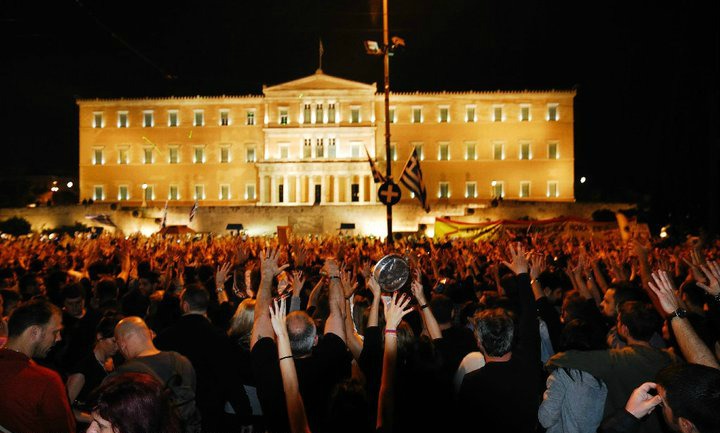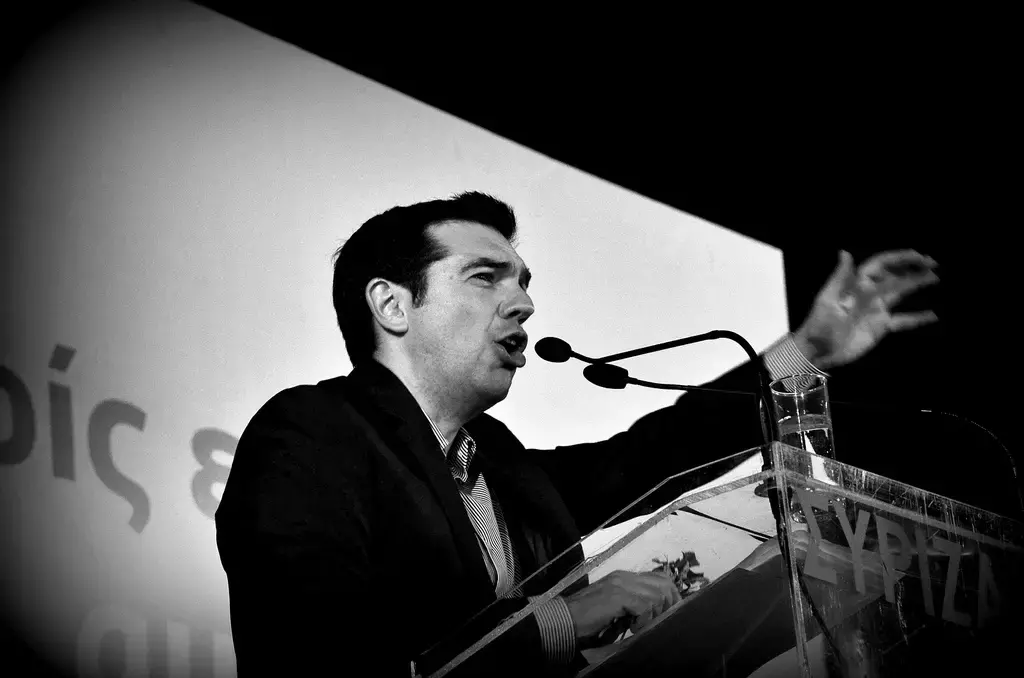The dream of every Greek used to be a public-sector job with lifetime tenure, says 21-year-old Pantelis Sterogiannis, a New Democracy party supporter. Now, he says, "we need to learn how to make our own jobs – but we also need good policies to make that happen."
The Greek national election on June 17, 2012, was the most important election in the nation's recent history, since its results could alter not only the course of the crisis in Greece but also the fate of the entire European Union. The showdown between two leading parties, the conservative New Democracy party and SYRIZA, the left-wing political party (also known as the Coalition of the Radical Left), was proof of the critical division of opinions within the electorate.
The election showed the extent of polarization between supporters of New Democracy and SYRIZA – and an even greater division between the younger and older generation, with the former much more inclined to vote for SYRIZA.
Within a mere four years SYRIZA managed to leap from 4 percent of the electorate to 27 percent. It still fell short, losing the general election to New Democracy, but it gained the majority of voters under the age of 50.
Youth's decision to side with SYRIZA stems from its frustration and disappointment with the policies of previous administrations – policies that have driven Greece into its current slump, in the view of organizations like the leftist group AREN at the University of Athens Law School.
AREN is one of the many student-run political parties within the University of Athens that make up the university's student council, the equivalent of a student government association. The student council in essence becomes a miniature of the larger Greek political scene. Each student council member belongs to a youth political group. In turn, each group associates itself with a governmental party and expresses the party's political ideology inside the university. This system was born from the idea that politics and public education are inevitably intertwined. Some students also describe it as a counter-solution to a "popularity contest" system, as is the case in most other countries, where individuals run independently for positions in the student council. "In this way," one student explains "ideologies and party platforms are put ahead of individuals who simply have a lot of friends willing to vote for them."
The members of AREN, most of whom support SYRIZA, see these elections as an opportunity for radical change against the austerity measures imposed by the so-called Memorandum, the agreement with the European Union and the International Monetary Fund (IMF) to privatize state assets. They consider the Memorandum to be the defining element in Greece's downfall.
New Democracy youth supporters, in contrast, feel that their party is the only one with viable solutions that can lead to growth. More importantly, they stress that the policies of SYRIZA are too extreme — that its anti-Memorandum stance in the parliament could jeopardize Greece's position in the Eurozone.
When asked what they expect from the new government, the AREN students insist that lowering the unemployment rate should be the top priority. They highlight the negative impact of the austerity measures, viewed as primary factors in preventing any reversal of the economic crisis that has now developed into a humanitarian crisis for the lower socioeconomic classes.
Just as SYRIZA and New Democracy failed to create a coalition government, due to irreconcilable differences, the youth political groups inside the university do not seem to be cooperating. One student remarks, "There is so much anger that sometimes the members of the student council forget that they're supposed to focus on university issues and end up getting into political arguments that are irrelevant."
Despite their opposing ideologies students all agreed on one thing: The crisis should be an opportunity for positive change.
"I like how people's mentality is changing. When there is no money, you redefine what is important and what is not," says 18-year-old Elati Pontikopoulou-Venieri, a member of the AREN group.
A senior leader in the New Democracy youth group optimistically described the crisis as a wake-up call for Greece to focus on entrepreneurship and private investments, since "people cannot expect the government to provide jobs anymore."
Even though most votes went to either SYRIZA or New Democracy, the decision was not as cut and dried as it might appear by the numbers. Most of the mainstream media has neglected the fact that the election's outcome is partly attributable to fear. Especially for the younger generation, facing a more than 50 percent unemployment rate, fear of what they deem a worst case scenario might explain why they voted the way they did. Those siding with SYRIZA believe that mainstream parties like New Democracy "created the problem" in the first place, that they lack the ideas required for a solution, and that they will inevitably repeat past mistakes. They fear how rapidly all public services are moving toward privatization, a process that they believe will eventually strip those in need of basic privileges like education and health care. Voters on the other side, however, were more concerned about preventing the inexperienced SYRIZA from coming to power. They voted for New Democracy as the only alternative that could win the election against the newly popular radical left.
While I was inside New Democracy's pre-election tent, interviewing Theoklis Chiotis, a 21-year-old party follower since his early teens, a woman walked in protesting the party's lavish campaign during this time of austerity. Chiotis explained that it wasn't the first time someone complained about this issue, but at the end of the day all he could tell the protesters was, "Be patient. Everyone feels frustrated." Chiotis now works as a part-time farmer based in Athens. Chiotis, just as most of the other youths I spoke to, sees New Democracy's youth group as perhaps the only way for someone his age to actively serve the nation and make a difference in society.







